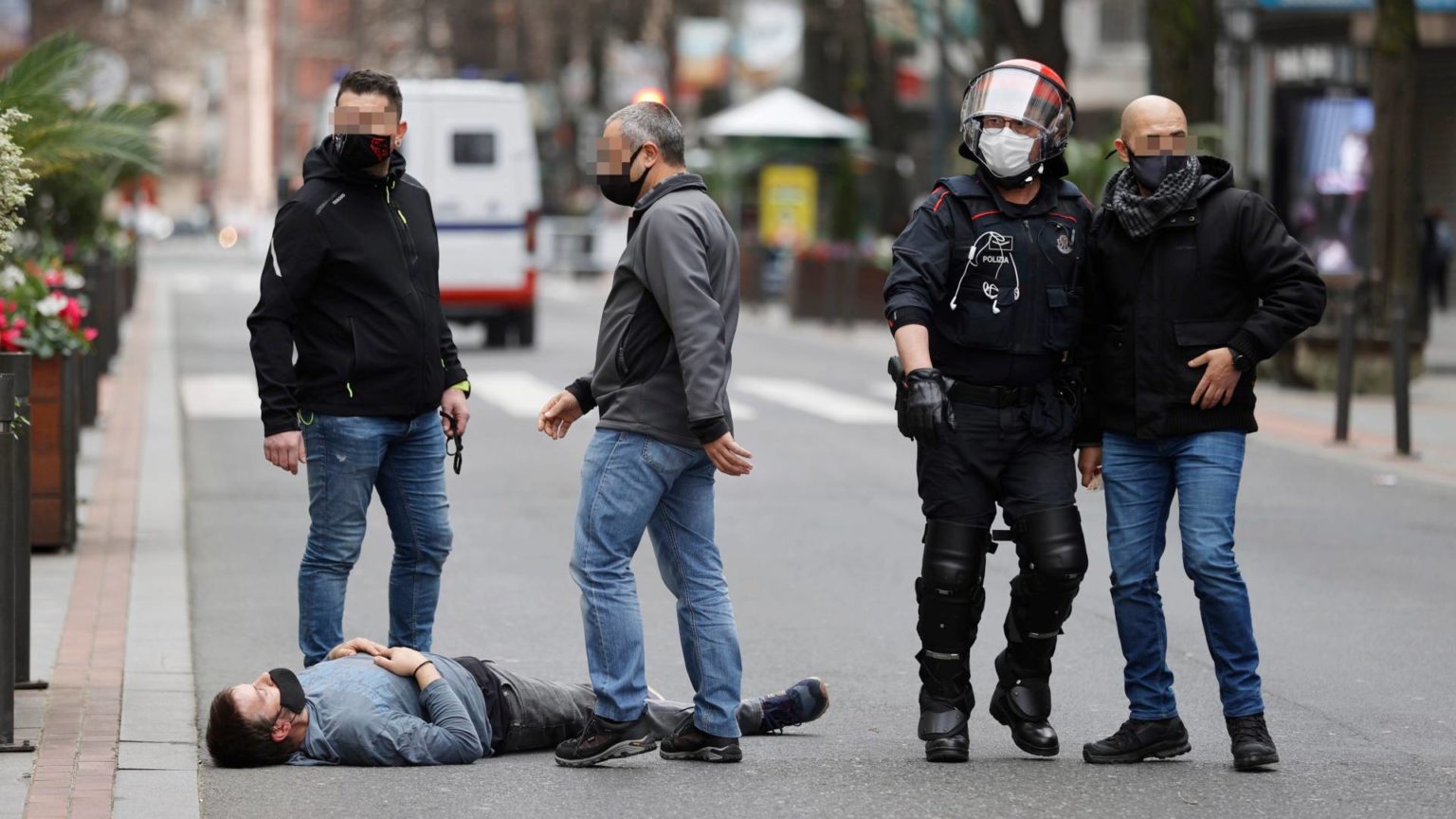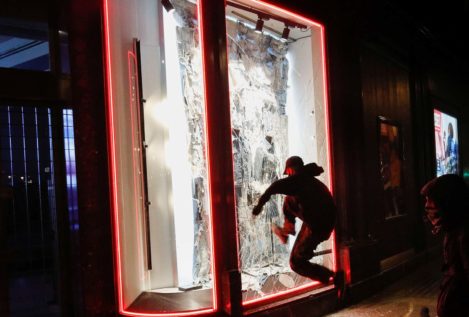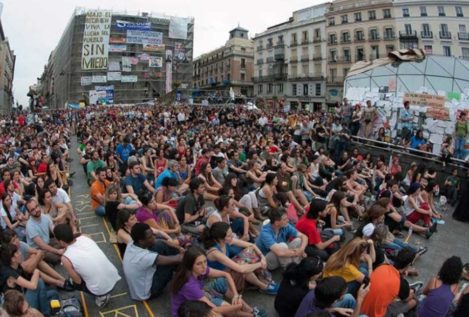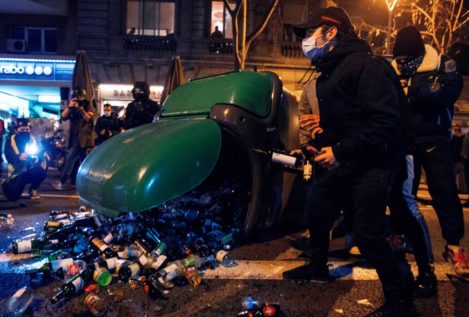Some Observations on the Hasél Case
«The same people who accused Trump of using his tweets to incite the assault on the Capitol have used Twitter to incite the revolts of the past week, and the onlookers who asked for Trump to be silenced are not asking now for Echenique to be»

Luis Tejido | EFE
- The protests over the conviction of Pablo Hasél have nothing to do with freedom of speech: in the best possible case they give voice to a festering discontent that could be related to a lack of representation felt by certain sectors of society which have been more or less abandoned to their fate; in the worst case, they are a pretext for those who want to do away with liberal democracy, which is, naturally, presented —in the stalest Marxist tradition— as a fascist State.
- That the judges’ decision should trigger rejection in our country should not come in any way as a surprise: here for some ten years by now we have been fueling the idea that neither laws nor sentences merit any respect whatsoever, to the point that those who broke into university lectures and organized demonstrations against elected politicians are now seated in the Government. It is hard to convince anybody that political agitation doesn’t bring good results.
- It is naive to go on debating these questions with people who only take advantage of the occasion —Shakespeare said that occasion is all— to advance their own political agenda, without any respect at all for normative arguments or empirical data. The same people who accused Trump of using his tweets to incite the assault on the Capitol have used Twitter to incite the revolts of the past week, and the onlookers who asked for Trump to be silenced are not asking now for Echenique to be.
- If, nonetheless, we were seriously to debate freedom of speech and its limits, we would have to take into account the circumstances in which citizens now exercise that right. Western democracies have left the heroic phase of their struggle for civil rights behind for some time now, when they demanded the possibility of speaking out with impunity against a State on the lookout for deviation. The martyrs now are not Gustave Flaubert or Lenny Bruce but, rather, the democrats living today in Russia, China or Turkey.
- It does not follow from this that there is no debate but that the debate cannot develop in the same way it did before: when the citizen’s freedom of speech was limited for purely technical reasons and was confined to participation in a demonstration, collective performance of a protest song or an angry call to a 21st-century answering machine.
- Any citizen can express an opinion on social media. And we still do not know what the systemic consequences are of this radical democratization of public opinion, which overrepresents some and underrepresents others, offering visibility to the kind of discourse that was previously on the margins. The widespread use of smartphones, the Great Recession, and the rise of anti-liberal political movements coincide in time, but nobody knows how much correlation or causality there is in their mutual relations.
- If in one of Plato’s dialogues it is pointed out that the pharmakon can be either an antidote against disease or a lethal poison for the organism, depending on the dose administered in each case, the same can be said of the exercise of freedom of speech in the democratic body: it seems hard to affirm that the free circulation of hate messages, including death threats or the glorification of violence, can be accepted without consequence or any restriction whatsoever, as if liberal democracies didn´t have a tragic past from which to learn and as if the republican tradition, which serves as a counterpoint to the liberal one, did not place at the centre of its model the virtuous citizen who fulfills his or her civic duties.
- Just as an unlimited right to speak cannot be recognized but, as a right, must be subject to certain limits, neither is it possible to restrict speech beforehand in any detail: its regulation in a digital society will have to allow for the evaluation of each specific case. That would mean decriminalizing the exercise of this right to the greatest extent possible without being naive enough to think that there are not, on occasion, words that are lethal for citizens’ peaceful coexistence.
- In answer to the question of whether the artist enjoys a special status , it is not easy to reply, especially when we are not clear about what an artist is and it is often taken to be enough that someone says that he is. It is one thing to listen to Pablo Hasél laugh over the assassination of Miguel Ángel Blanco and to hear his pitiful flow and another thing altogether to put on Gil Scott-Heron and hear him say that the revolution will not be televised.
- Persuading the enemies of the system that the system has its virtues seems difficult, though maybe not impossible. The great Romance scholar Hans Ulrich Gombrecht, born in 1948, says in an interview that he was cured of the Communist fantasy thanks to a trip that the German Government organised for all elementary school students in the Federal Republic: after spending a few days in Berlin, the kids went for a long walk through the Eastern part of the city, which forever eliminated the possibility of projecting their utopian hopes beyond today’s disappeared iron curtain.





